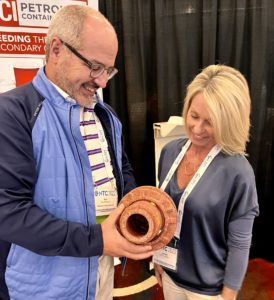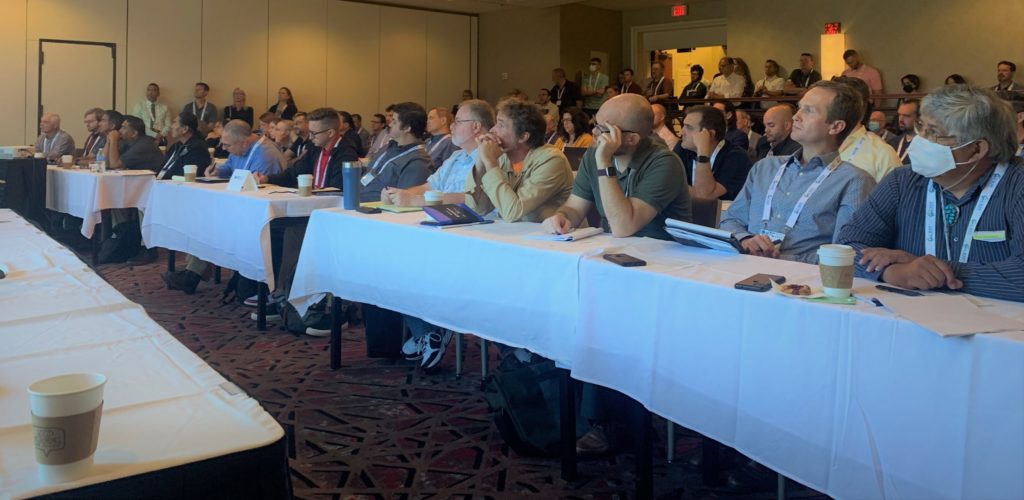There were many new faces at the National Tanks Conference in Pittsburgh this September.

Like many other industries, the field of underground storage tank regulation and leak prevention has seen significant staff turnover in the last few years. As industry veterans have retired, they’ve left the role of networking, knowledge-sharing, and collaboration with their counterparts across the country to a new generation of tanks professionals.
The conference is primarily catered towards regulators who work to prevent or clean up the release of fuel and other chemicals from underground storage tanks. However, it is also an important knowledge-exchange and networking opportunity for tank owners and operators and for environmental consultants.
The conference was organized around the main programmatic divisions for tanks regulation: release prevention, release cleanup, the funding mechanisms behind tanks programs, and cross-program issues. Throughout the event, attendees could mingle in the exposition hall, where private industry representatives exhibited their research and technology.
The conference was an opportunity for many tanks regulators to build new connections and participate in professional development and in-person training that hasn’t been available for the last two years. Many of the conference sessions focused on what has changed in the industry and what challenges lie ahead, such as knowledge transfer to new staff, climate change and natural disasters, aging tanks, supply chain issues, and environmental justice priorities.

NEIWPCC plans and hosts the National Tanks Conference and Exposition in partnership with the EPA Office of Underground Storage Tanks (OUST) and with the Association of State and Territorial Solid Waste Management Officials (ASTSWMO).
The conference opened with welcoming remarks from NEIWPCC Executive Director Susan Sullivan, ASTSWMO Executive Director Dania Rodriguez, and EPA OUST Acting Director Mark Barolo. Those remarks were followed by presentations from Barolo and Pennsylvania DEP’s Justin Dula, both on incorporating environmental justice into tanks programs.
The conference drew nearly 600 attendees from all 50 states, D.C., Puerto Rico, Guam, 11 tribes, and 2 Canadian provinces.
Discussions during the National Tanks Conference help inform NEIWPCC’s other training and information-exchange opportunities for tanks professionals, including our webinar series and national trade publication, “LUSTLine.” For more information about NEIWPCC’s involvement in the national tanks program, please contact James Plummer at jplummer@neiwpcc.org.